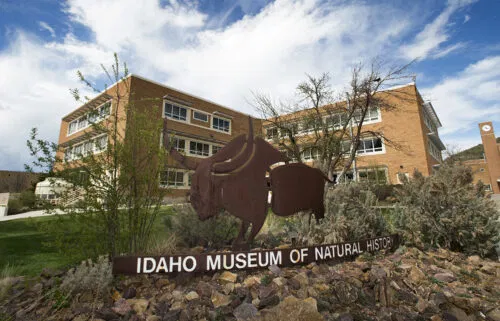ISU receives $1.5 million for scholarships
POCATELLO, Idaho (KIFI) - Future scientists looking to continue their academic careers at Idaho State University are getting a financial hand thanks to the National Science Foundation.
Recently, the NSF awarded a $1.5 million grant to ISU for transfer student scholarships and other support for students seeking to earn an undergraduate degree in biology, microbiology, biochemistry, or chemistry. The grant will provide up to 45 high-achieving, low-income students with two-year scholarships to transfer to Idaho State over the next four years. The grant will also help with other faculty-led initiatives that will help students kickstart their research careers at ISU.
“Transfer students face unique challenges when they begin at a new school, and a big one is finding their place in a university’s research community,” said Anna Grinath, assistant professor of biology education research with Idaho State’s Department of Biological Sciences. “With this funding from the NSF, we’ll be able to offset some of their financial needs and get these students involved in research early, setting them on a path to success in their science careers.”
The grant provides the funding for a new course designed specifically for transfer students called Fully Immersive Research Exploration (FIRE). Taken during a student’s first semester on campus, the FIRE course will allow them to explore the multitude of different research opportunities at Idaho State. Ideally, when students are done with the class, they will connect with a faculty member and begin a research project in the faculty member's lab.
“The FIRE course will help support transfer students coming to ISU by allowing them to quickly get into hands-on science with biology and chemistry faculty members who are active researchers in their field,” said Julia Martin, associate professor of microbiology and biochemistry. “The students will be able to connect with students and faculty who share their research interests and develop a sense of belonging in the biology and chemistry communities.”
Previously, ISU's Department of Chemistry was awarded similar grants from the NSF in 2015 and 2009. Totaling nearly $1.2 million, the grants funded over 80 scholarships for chemistry and biochemistry undergraduates and also provided support for student research projects, funds to travel to conferences, and other professional development activities.
“Even though the program ended in 2020, we’ve been able to keep many of its elements going, such as student outreach activities, the Summer Undergraduate Research Fellowship program, and more,” said Joshua Pak, professor and chemistry department chair. “These programs have helped build a supportive community among chemistry and biochemistry majors and fostered close relationships between students and faculty. All of these efforts continue to help students succeed at Idaho State.”
The demand for science, technology, engineering, and math (STEM) occupations is projected to grow by over 10 percent by 2030, according to the U.S. Bureau of Labor Statistics. The median annual wage in STEM careers is $95,420.
“Idaho State University is so fortunate to have outstanding biology and chemistry faculty dedicated to educating students and providing them a path to a better future,” said Scott Snyder, Dean of ISU’s College of Science and Engineering. “Congratulations to Dr. Grinath and her colleagues for receiving this impressive grant. We are excited to welcome outstanding transfer students to become ISU Bengals, where they will learn and discover more about themselves and our world.”
The scholarships will be available to transfer students starting with the 2023-24 school year.






